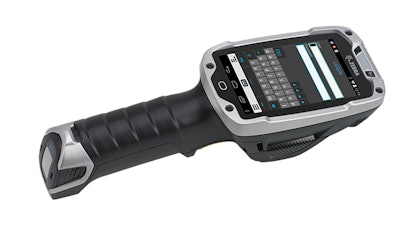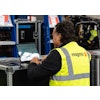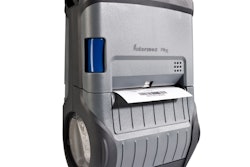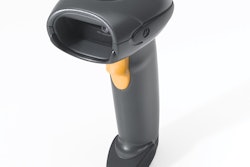
Scanner guns—the barcode readers used in warehouses world-wide—are getting a makeover, as retailers scramble to boost productivity amid a surge in online orders, according to The Wall Street Journal.
From “rings” that workers wear on their hands to modified smartphones, companies are testing alternatives to the “brick on a stick” scanners that have been the industry standard for decades.
The goal: shave a few precious seconds off the time it takes for workers to select, pack and ship items. Warehouse workers use scanners thousands of times a day. Retailers rely on the devices to keep track of hundreds of thousands of goods stored in, and moving around, massive distribution centers.
Zebra Technologies Co., the biggest maker of scanners, is the latest to offer an alternative. The company is betting on a new version of its gun that eliminates the need for warehouse employees to continuously extend their arms or rotate their wrists. Zebra, which is based in Lincolnshire, Ill., says the baton-like device, which features a touch screen and camera, will increase scanning speed and reduce stress on workers’ arms. The company, which acquired the scanner business from Motorola Solutions Inc. in 2014 and also makes printers, plans to roll out its new device on Thursday.
James Bonner, general manager of Exel Logistics, a unit of Deutsche Post DHL, said his employees make roughly 3,000 scans each during a 7.5-hour shift. He said that in a three-month test of Zebra’s new device his employees had 10 percent to 20 percent improvement in picking rates—or the speed of assembling orders—in part because they no longer had to push buttons.
To read more, click here.

















